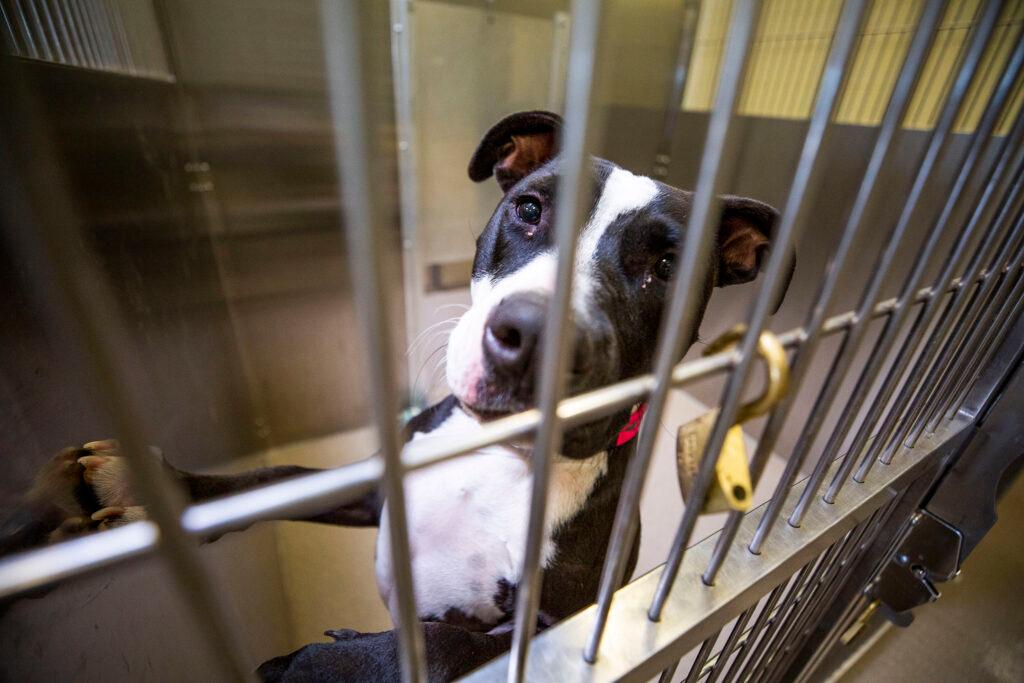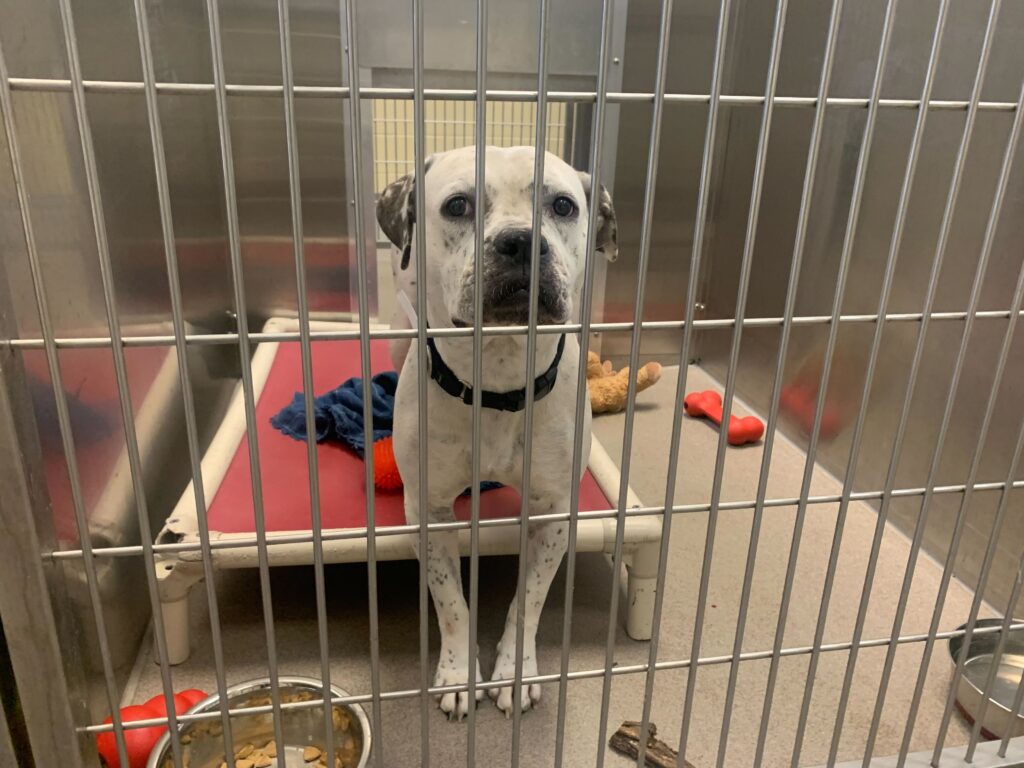
There is more barking and meowing at animal shelters across the Front Range recently.
That’s because facilities are overcrowded.
Shelters have seen an uptick in surrenders, animal cruelty cases, and strays. And potential pets aren’t getting adopted fast enough.
Though many are your standard dog or cat, Denver Animal Shelter service manager Meghan Dillmore says there’s even been an uptick in exotic animals.
“So that's your rats, mice, hamsters, gerbils, Guinea pigs, and rabbits,” Dillmore said. “And then, we've also been seeing a lot of leopard geckos.”
Recently, the Aurora Animal Shelter had to limit services due to capacity and be more selective about which animals to shelter.
“Just because of our capacity issues we've had to leave that open for strays coming in or any of those animals that don't currently have a home,” Dillmore said.
Overcrowding is nothing new for Aurora — it’s one of the smallest shelters in the area. But, normally, when the shelter reaches full capacity, the animals are transferred to another shelter.
But Aurora Animal Shelter Community Outreach Coordinator Nicole Robbins says that’s not an option right now.
“The fact that all of our rescue partners and all of our shelter collaborations are (saying), ‘I'm so sorry. We can't take your animals right now because we're all so full,’” Robbins said.
“And, that's definitely new territory where we can't lean into those same relationships. So, we're having animals sit longer than we'd like.”
Many blame overcrowding on the pandemic. But, Dillmore says a nationwide shortage of veterinarians is causing adoption delays.
“Per state of Colorado regulations, animals have to be spayed and neutered before they're adopted out from a shelter,” Dillmore said. “If we're not able to get them all through surgery in a timely fashion, then those animals are going to stay in the shelter longer while we're trying to get them into surgery.”
Owners are surrendering animals for various reasons. Housing is an issue
The problem isn't just that people don't want their pets. Dillmore says shelters are seeing owners move to new homes where pets aren’t welcome.
“There's definitely a lack of pet friendly housing in America in general,” Dillmore said. “Or there are really specific breeds that certain landlords or companies won't allow in their complexes.”
Other reasons include newborn babies and pets not getting along.
And with all these mouths to feed - the Aurora pet food pantry is running low. It regularly receives donations and most recently a huge one from the Colorado Pet Food Pantry. But Robbins said it has been hard keeping up.
“We are getting a lot of donations regularly, which is great. But we are just getting a lot of requests,” Robbins said. “If somebody needs a 50 pound bag of dog food, we're gonna give it to them. But then we're lower.”
The Denver and Aurora Shelters have tried ways to attract more adoptions. The Denver Animal Shelter offered 50 percent off on adoption fees through the Clear the Shelter program in August. The Aurora Animal Shelter offered a similar promotion.
But both had little effect.

Dillmore says pet owners are encouraged to re-home their animals before surrendering them.
“Try and go through other avenues. Do you have a family member or a friend that could, is possibly interested in adopting the dog or cat or ferret or what have you?,” Dillmore said. “But, if it does need to be brought somewhere, we'd prefer it be brought back to us. We don't judge here.”
Dillmore said the ultimate goal is to find the right fit for any animal.
Anyone interested in adopting a pet should visit the shelter website in your area. The Denver Animal Shelter encourages future pet owners to look at its lost and found page when considering adoptions.
The website is helpful, but, Dillmore said, some connections are made unexpectedly.
“Sometimes people are like, ‘I was not planning on taking a 10 pound Chihuahua home. I wanted this boxer over here. But, I fell in love with it, just walking through the shelter,’” Dillmore said. “And so, it's really cool to see stuff like that. That's one of my favorite parts of the job.”








